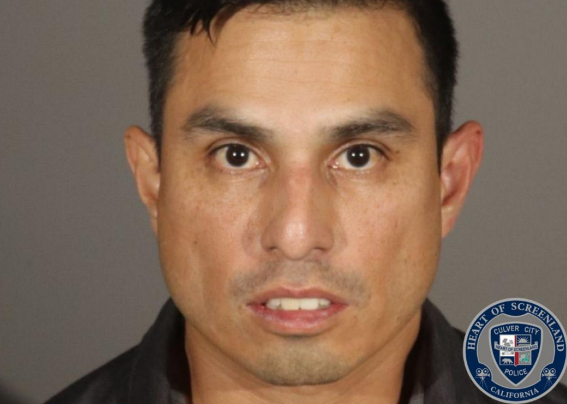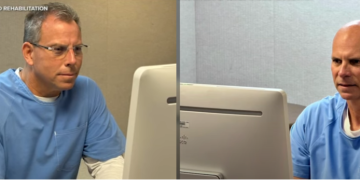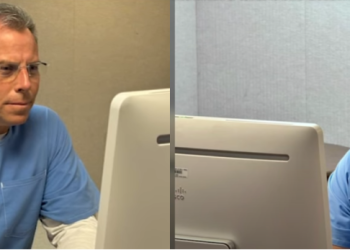By Maija Sanna, MD
Special to Westside Today

Fatigue is one of the most common complaints I hear from my patients. “Now that I’m retired, I should have the energy to do more things, but I tire easily and need to take naps during the day,” says one patient, echoing the sentiments of others. Many of my patients wonder if fatigue is a normal part of aging or a symptom of a more sinister problem.
The fact is, fatigue can occur for many reasons. Getting to the root cause of your fatigue involves discussing your symptoms and daily activities with your doctor. He or she will decide what tests you need to rule out common medical causes, including anemia, thyroid problems and vitamin deficiencies. Sometimes the cause can be found easily with routine blood work, while in other cases more specialized tests are needed.
One common cause for fatigue that cannot be found via blood work is sleep apnea, which comes in three types:
Obstructive sleep apnea (OSA) – caused by throat muscles relaxing, leading to an airway blockage during sleep;
Central sleep apnea – occurs when the brain fails to send the signal to breathe during sleep; and
Complex sleep apnea – a combination of the above types.
All three can lead to a poor night’s sleep, leaving you feeling fatigued the next day, but OSA is the most common culprit.
In addition to fatigue, other OSA symptoms include loud snoring, headaches, difficulty concentrating, waking with shortness of breath or chest pain and mood changes. Often, your sleep partner may be the only one to hear the snoring or notice the brief periods when you stop breathing. They might describe this as snoring followed by pauses, and then gasping or choking sounds.
Frequently, people with obstructive sleep apnea are not even aware of these episodes. When they stop breathing, oxygen levels in their blood drop and trigger their brain to wake up enough to open up the airway and begin breathing normally. This process can happen repeatedly throughout the night and interfere with the ability to reach deep sleep. Most sufferers are unaware of these awakenings and will report having a full-night’s sleep, yet complain of feeling unrefreshed and fatigued throughout the day.
Risk factors for sleep apnea include:
being overweight; increasing age; a large neck or narrow airway; chronic nasal congestion; family history of sleep apnea; smoking or alcohol use; high blood pressure; and diabetes.
Sleep apnea is more common in men than in women, but some people have it with none of these risk factors.
To diagnose sleep apnea, you need to undergo a sleep study. For that, you’ll sleep in a specialized center where your heart, lung, brain and muscle activity are monitored, as well as your oxygen level. If you meet criteria for sleep apnea after the first half of the night, they will have you wear a special mask, known as a “CPAP” for continuous positive airway pressure, while sleeping to help keep open your airway. These masks are the most common treatment for sleep apnea.
Other treatment options include using dental devices or, less frequently, surgery. Those diagnosed with sleep apnea are usually referred to sleep specialists who can help choose the best treatment option. While the mask may sound cumbersome, there are many different types of CPAP masks that can be tailored to ensure comfortable sleep.
While these treatment options are not perfect and many people get annoyed with wearing a mask or device every night, the importance of treating sleep apnea cannot be overstated.
Untreated sleep apnea can contribute to the following complications:
High blood pressure; Abnormal heart rhythms; Heart failure; Coronary artery disease; Stroke; Chronic headaches; Depression or irritability; Memory problems; Accidents from falling asleep at the wheel.
Lifestyle modifications also can help with sleep apnea. If you are overweight, losing pounds is a good start. Regular exercise is important, and if you smoke, quitting can reduce apnea episodes. Reducing alcohol intake also can help, especially avoiding alcohol for several hours before bedtime. Avoid using sedative medications. Treat any nasal congestion. Sleep on your side, as OSA can be worse when lying on your back.
For those suffering from fatigue, I encourage you to note any symptoms you experience and ask your sleep partner if he/she has noticed any snoring or pauses in your breathing during sleep. Bring your concerns and questions to your primary care doctor, who will initiate the medical workup and determine if you have risk factors or symptoms consistent with sleep apnea.
If your sleep partner is complaining about your snoring or sleeping in another room to get more rest, it’s time to get a full sleep evaluation – and more restful zzzzs!
Dr. Maija Sanna is a board-certified geriatrician with the highly regarded UCLA Geriatrics Program in Santa Monica and Westwood. For more information, visit www.uclahealth.org or call 310. 319.4371.





















